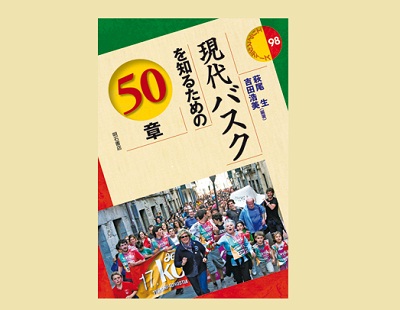basque heritage worldwide

06/27/2012

ADVERTISING
Tokyo Japan. Hagio Sho’s passion for the Basque culture and Euskera, that he speaks fluently, started several years ago in a Basque studies class taught at Waseda University by honorary Basque Academy member Suzuko Tamura. That is also where he met Hiromi Yoshida, with whom he wrote the book Gendai Basuku wo Shiru tame no 50 Shou (How to know and understand today’s Basque society and culture in 50 chapters). The book has been published by the prestigious Akashi Shoten Ltd. in Tokyo.
The book hopes to provide a broader point of view on Basque culture and to clarify some erroneous or incomplete information which the Japanese may currently access via the media and the internet. As Sho explained to EuskalKultura.com, the majority of publications on the Basque Country in Japan “reflect a centralist point of view,” while his includes information of the whole culture and country of the Basques and their language, including its seven provinces.
The Japanese Euskalduna says that this work hopes to overcome the Basque context, to achieve a comprehensive and universal point of view. For example, the “void” that is so important in order to understand the works of Oteiza and Chillida is very easily understood in Japan through Taoism and Zen thought. The same thing happens “when Josean Artze talks about the sound of the txalaparta as the echo of silence.”
Herri kirolak in Kobe and Nagoya
Hagio Sho also announced two activities that the Tokyo’s Euskal Etxea will participate in this August. The first is the II International Seminar on Globalization and Traditional Sport that will take place in Kobe on August 6-9. The event is organized by the Municipal University of Foreign Studies in Kobe and the University of the Basque Country with the collaboration of Tokyo’s Euskal Etxea.
The second is a conference on traditional Basque sports organized by the Euskal Etxea that will take place in Nagoya on August 11. This conference will include presentations by seven experts from the University of the Basque Country.
ADVERTISING
ADVERTISING
ADVERTISING
ADVERTISING
ADVERTISING
© 2014 - 2019 Basque Heritage Elkartea
Bera Bera 73
20009 Donostia / San Sebastián
Tel: (+34) 943 316170
Email: info@euskalkultura.eus